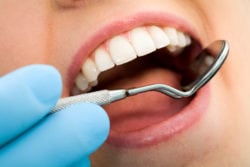 You can’t argue with how important our teeth are to us. They help us chew which nourishes our bodies and helps us grow strong and stay healthy. Our teeth also are an integral part of our smiles which are a big part of making friends. We have two sets of the teeth in our lives: baby teeth and their adult teeth. Usually our adult teeth have grown in by age twelve or thirteen. There won’t be any more if you lose them, so it’s very important to take good care of them. The most prevalent threat to the longevity of your teeth are cavities.
You can’t argue with how important our teeth are to us. They help us chew which nourishes our bodies and helps us grow strong and stay healthy. Our teeth also are an integral part of our smiles which are a big part of making friends. We have two sets of the teeth in our lives: baby teeth and their adult teeth. Usually our adult teeth have grown in by age twelve or thirteen. There won’t be any more if you lose them, so it’s very important to take good care of them. The most prevalent threat to the longevity of your teeth are cavities.
What Is A Cavity?
Cavities are another name for spots of tooth decay that develop on our teeth where the enamel has been eaten away at and broken open, exposing the sensitive soft tissues and nerves within. Cavities make your teeth vulnerable to bacteria which can cause infections inside your teeth. Cavities also expose the nerves inside your teeth, making your teeth extra sensitive to temperature and touch which can even make chewing properly difficult. This limits your dietary options and may prevent you from getting all the nutrients you need.
Cavities are the most frequently diagnosed ailment that humans suffer from, right after the common cold. But what causes this threat to healthy smiles? How do we fix them? And what can be done to prevent them in the first place? Dr. Harry W. McCool of Lilburn, GA has the answers.
How Do Cavities Form?
Our mouths host colonies of living bacteria, most of which is relatively harmless on its own. These bacteria tend to concentrate in locations in your mouth that are hard to clean such as in between your teeth and right at the gum line and there they form plaque. Whenever we eat foods that contain carbohydrates like sugars (found in donuts and candy) or starches (like in potato chips), the bacteria in our mouths break these components down. This creates acids that bind to the plaque already on our teeth and begin eating away at our tooth enamel.
How Are Cavities Treated?
Cavities are usually treated with fillings by your dental provider. In this treatment the holes — hence the name cavities — or weakened areas in tooth enamel are reinforced with various substances. This halts the process of decay by blocking access to any more bacteria to the hole in the tooth. Fillings can be made of composite resin, amalgamated metals, gold, silver or glass ionomer. Dr. McCool will consult with you to decide which route would work best for your teeth.
Preventing Cavities
As with many ailments, it’s far easier to care for something than to repair it once it breaks. Our teeth work this way as well. Brushing after meals or at least twice daily with a fluoride toothpaste is suggested by dentists to remove any plaque that is forming. Dentists also recommend cutting down on carbohydrates and maintaining proper hydration. A dry mouth speeds up the acidic breakdown of your tooth enamel.
Daily flossing helps clear away the plaque and prevent the formation of cavities in those hard to reach spaces between your teeth. The most crucial part of prevention is regular check-ups and cleanings at your dentist’s office. For those patients in Lilburn, GA area, call (770) 450-4407 or schedule an appointment online to consult with Dr. McCool. If you think you may be suffering from cavity or would just like to schedule a cleaning to prevent them, contact us today!
